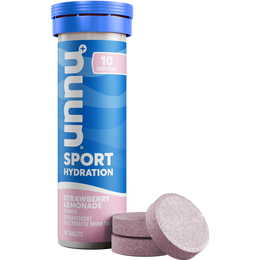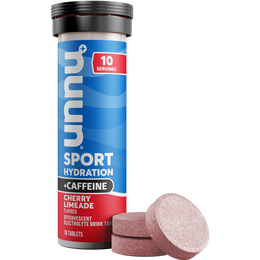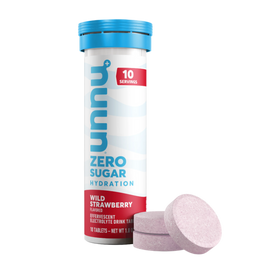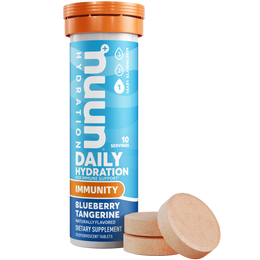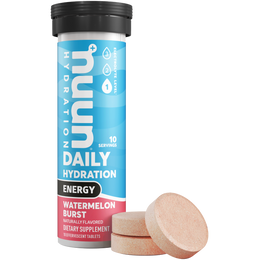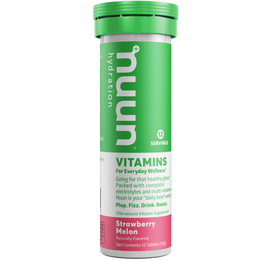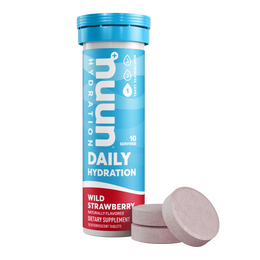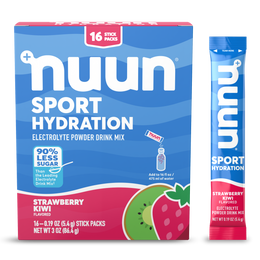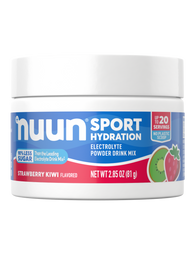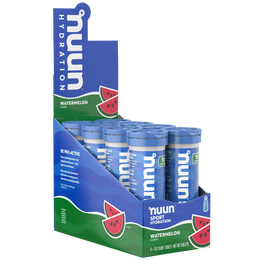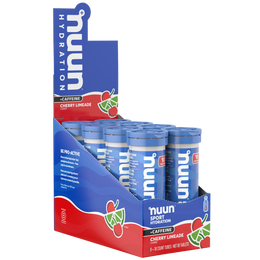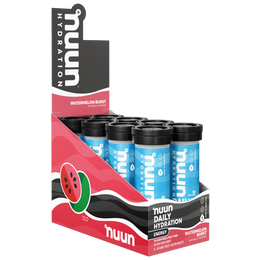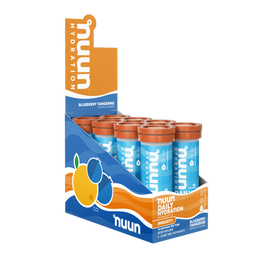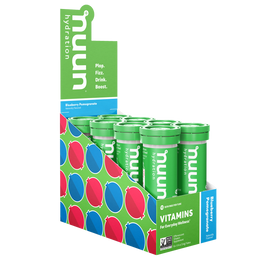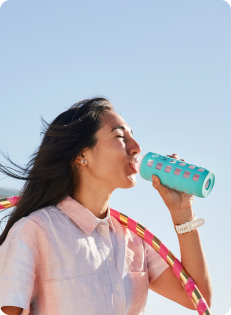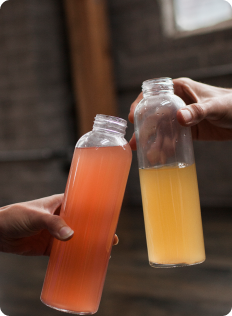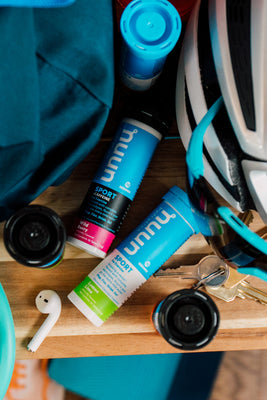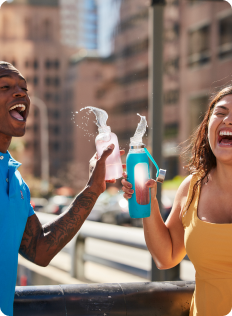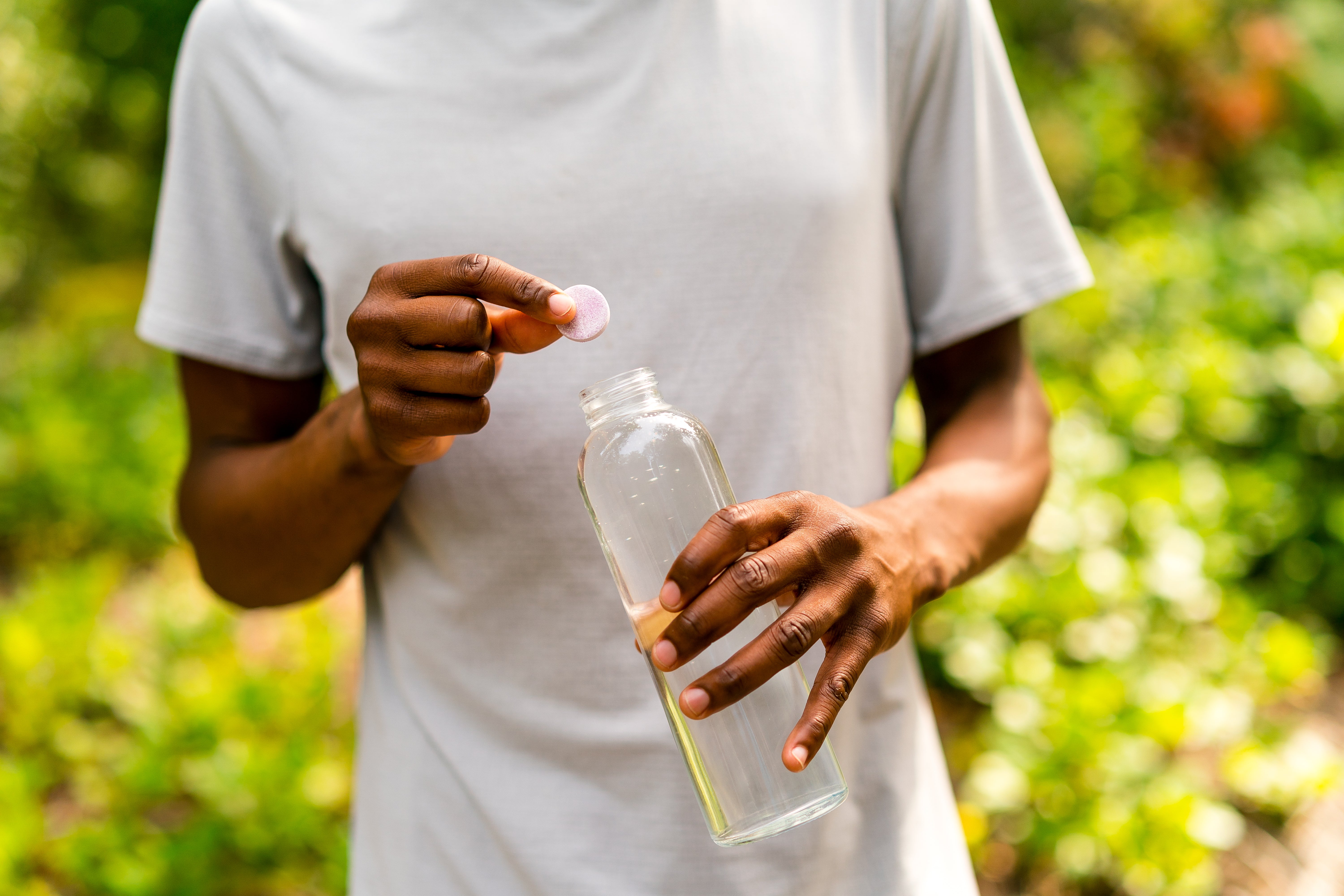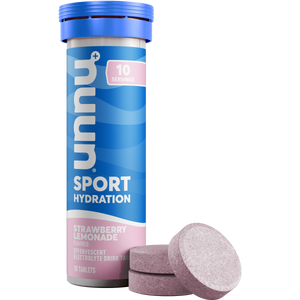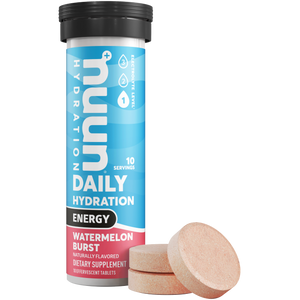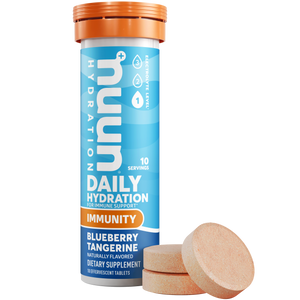If your day has ever been interrupted by a painful spasm in your leg or a knot in your neck, you’re already familiar with muscle stiffness and cramping. While they often go hand in hand, cramping and stiffness are two different conditions that can occasionally affect your muscles. Learn what causes muscle cramping and stiffness and how to remedy both with hydration.
What Is Muscle Cramping?
Muscle cramping, also known as muscle spasms, occurs when your muscle tightens or contracts involuntarily. Cramps can happen to anyone at any time of day. However, athletes are at a higher risk for muscle cramps because they fatigue their muscles regularly. In addition, any muscle can cramp, but the foot and leg muscles are generally the most common. The exact cause of muscle cramping is still largely unknown, but prioritizing things like hydration, stretching, and massages can help ease your symptoms. Generally, mild muscle cramps—although uncomfortable—resolve on their own over time.
What Is Muscle Stiffness?
Imagine flexing a muscle and being unable to relax that muscle afterward—that’s the feeling of muscle stiffness. Muscle stiffness causes one or more of your muscles to feel tight and difficult to move. Anyone can experience muscle stiffness, especially individuals who sit or lie down for prolonged periods and athletes who overexert their muscles during physical activity.
Stiffness can occur in any muscle, but common culprits include the feet, back, neck, and legs. While the exact reason for muscle stiffness varies, overuse and underuse of a muscle and aging are common causes.
How to Soothe Muscle Cramping
-
Stretching and massages: Gently stretch the muscle and massage the area until the cramping stops.
-
Ice packs: Apply an ice pack or cold compress for a few minutes to help your muscles relax.
-
Hydration: Your muscle tissues require nutrients and electrolytes to flex and relax properly. Dehydration can deprive your muscles of the minerals and electrolytes they need, potentially causing muscle cramping.
How to Soothe Muscle Stiffness
- Hot or cold therapy: Apply a warm compress to relax stiff muscles and a cold compress to reduce inflammation. Try switching between the two several times a day for maximum relief.
- Massages: Massage the stiff area until the muscle starts to relax.
- Stretching: Relieve stiff muscles by practicing yoga or gently holding static stretches.
- Hydrate: Like with muscle cramping, an electrolyte imbalance can cause your muscles to lose important minerals, resulting in muscle stiffness.
The Importance of Hydration
Hydrating regularly, especially during physical activity, is essential for replacing the various fluids you lose throughout the day. In addition, hydration and getting the right balance of electrolytes is a key component of muscle function. Not only can an electrolyte imbalance cause cramping and stiffness, but it can also lower your endurance. In fact, running low on water or electrolytes can impact your athletic performance, mood, and breathing. If you’re looking for a tasty way to meet your daily hydration goals, try Nuun tablets for functional hydration using optimized electrolytes.
